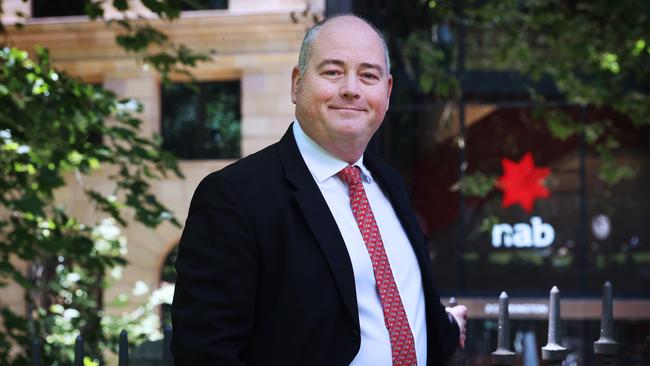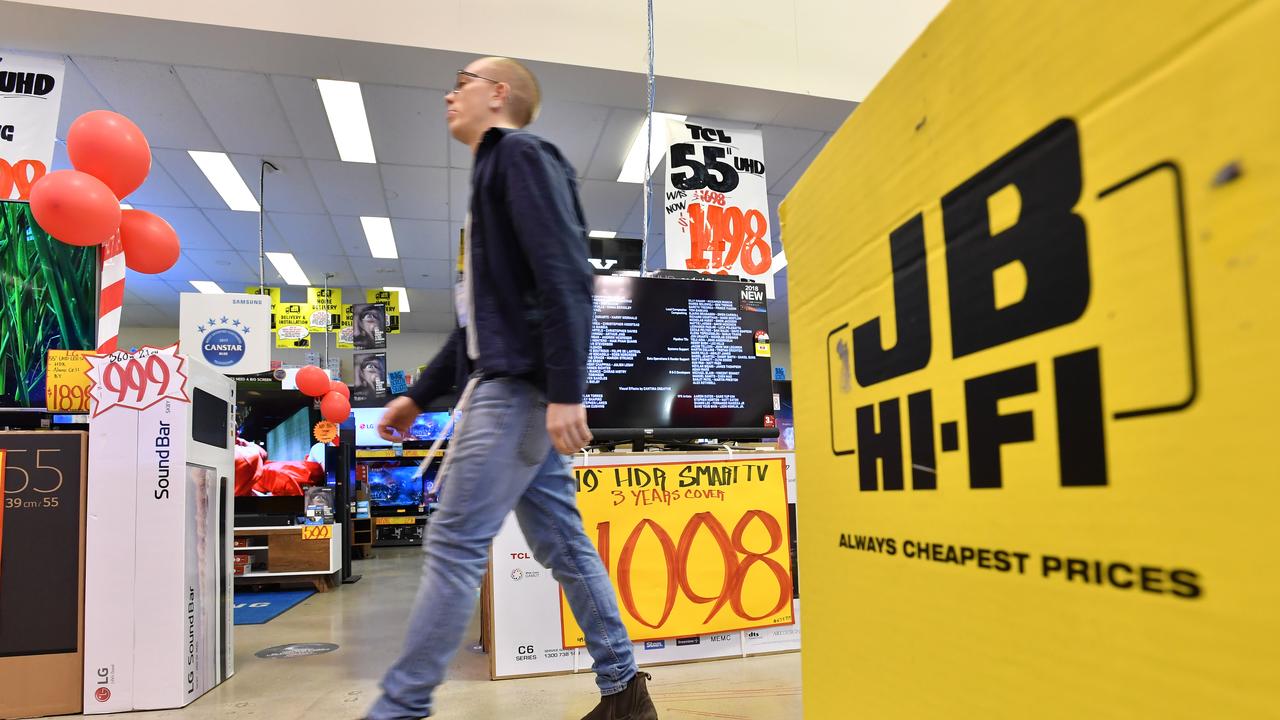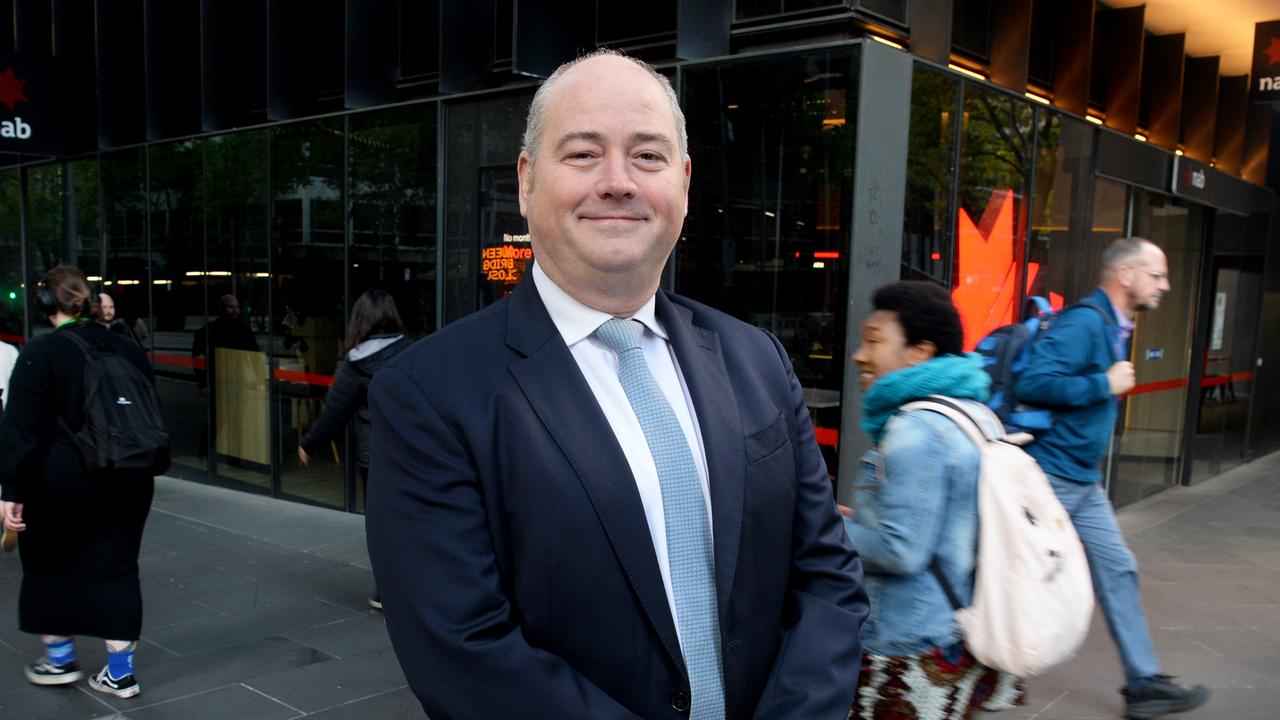NAB CEO Andrew Irvine: Property market a national crisis
Andrew Irvine says Australia needs more skilled migrants and to be more innovative on types of housing and construction methods, to address its crisis.

Economy
How would you rate the momentum of the Australian economy as we head into 2025? Official forecasts have Australia trimming interest rates from the first half of calendar 2025, is that consistent with your view? What are you seeing around inflation in your own business?
Elevated rates and cost of living pressures continue to weigh on many. Unfortunately, any rate relief is unlikely to happen as fast as homebuyers would like. We’re now predicting the next rate move will be down in the first half of next year. Inflation continues to moderate but services inflation remains strong and businesses tell us that labour and input costs remain high. Despite headwinds, the economy is in reasonable shape with the labour market remaining strong, and I continue to be optimistic for the longer-term. There is much needed light at the end of the tunnel. For these customers in difficulty, we are here to help.
Outlook
What excites you heading into 2025? Are you likely to increase, hold steady, or trim your investment spend?
It has been a great year of listening to customers and colleagues, putting in place my leadership team and refreshing NAB’s strategy. I’m excited about the year ahead. We are increasing our investment into our business and into our technology platforms, and adding extra bankers to support customers. We’re making deliberate choices about where we want to grow.
Reform
As we move into an election year, in your mind, what’s the single biggest lever that can/should be used to lift Australia’s competitiveness or productivity? This could be across any area from labour market, tax reform, training or other areas to encourage investment.
Nowhere is weak productivity being felt more than in the housing sector, where Australia cannot build enough houses, while building companies and property developers tell us they are struggling to make projects financially viable. There’s no easy fix to this national crisis. We need more skilled migrants and to be more innovative in the types of housing and methods of construction. An enhanced focus on skills and training is vital to lifting productivity by ensuring Australia has the skilled workforce needed for the future.
Geopolitics
Will a Donald Trump presidency have a potential impact on your business or sector (tariffs or streamlined regulation)? Does geopolitics drive a bigger part of your decision-making?
Markets like certainty and the election result gives that. What gives me optimism is that over the last four or five years, many Australian businesses have diversified their markets. We have seen terrific diversification not just in commodities and agriculture but across all sectors. That puts Australia in a stronger relative position. We will have to see how Mr Trump’s comments about increasing tariffs play out over time, but it’s clear, no one wins in a trade war.
People
Has your organisation’s approach to flexible working – including working from home – evolved during the year. Is this likely to change further into 2025?
NAB is a hybrid workplace, giving employees the flexibility to do their job in a way that is good for them and our customers. We are also encouraging colleagues to be back in the workplace more often for the benefit of customers and each other. As culture carriers of the organisation, our most senior leaders are expected to be with customers or in the office with their teams. We’ve found this is helping build a strong culture that helps our youngest employees learn and develop their skills too.
Technology
Where is your organisation along the AI journey – is it in the developmental stage, or are you now using the technology at scale across your business? If so, are benefits matching the promise?
Every big innovation or technological leap has created more jobs than it has taken away. Printing presses, steam to electrification to name but a few. Banks 50-60 years ago had thousands of people on their typist floors. We don’t have typists anymore and yet we employ more people than we did then. The nature of work will change and what’s important is we help the workforce to rescale and move to where the economy is going, versus where it’s been.
At NAB, it’s about freeing up our bankers’ time so that they can spend it with customers. We’re already using generative AI for knowledge management for bankers, marketing content creation, co-pilots for summarising reports and drafting notes and accelerating the review of trust deeds. We have more than 1,000 engineers working with Amazon Q technology to help with coding. It’s about making things easier for our customers and easing the administrative burden.



To join the conversation, please log in. Don't have an account? Register
Join the conversation, you are commenting as Logout